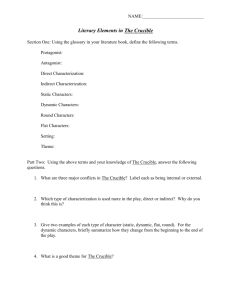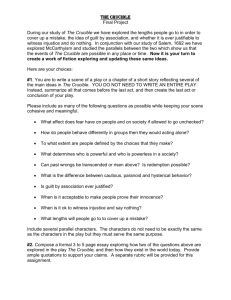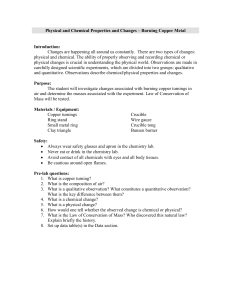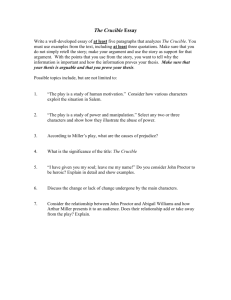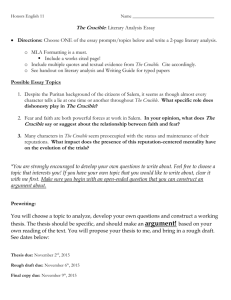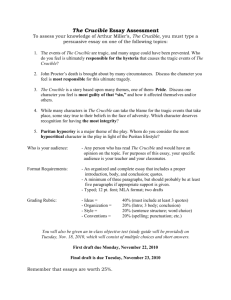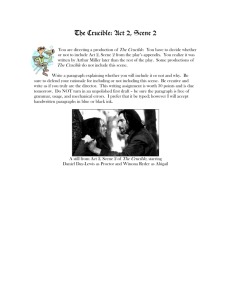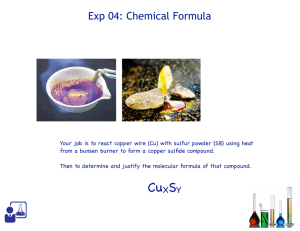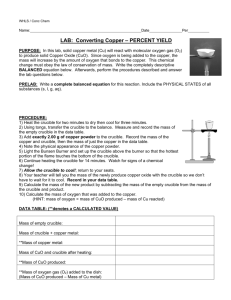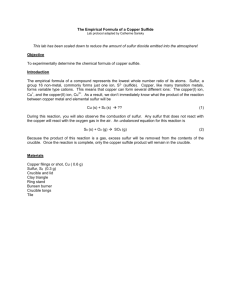Chemical Formulas
advertisement
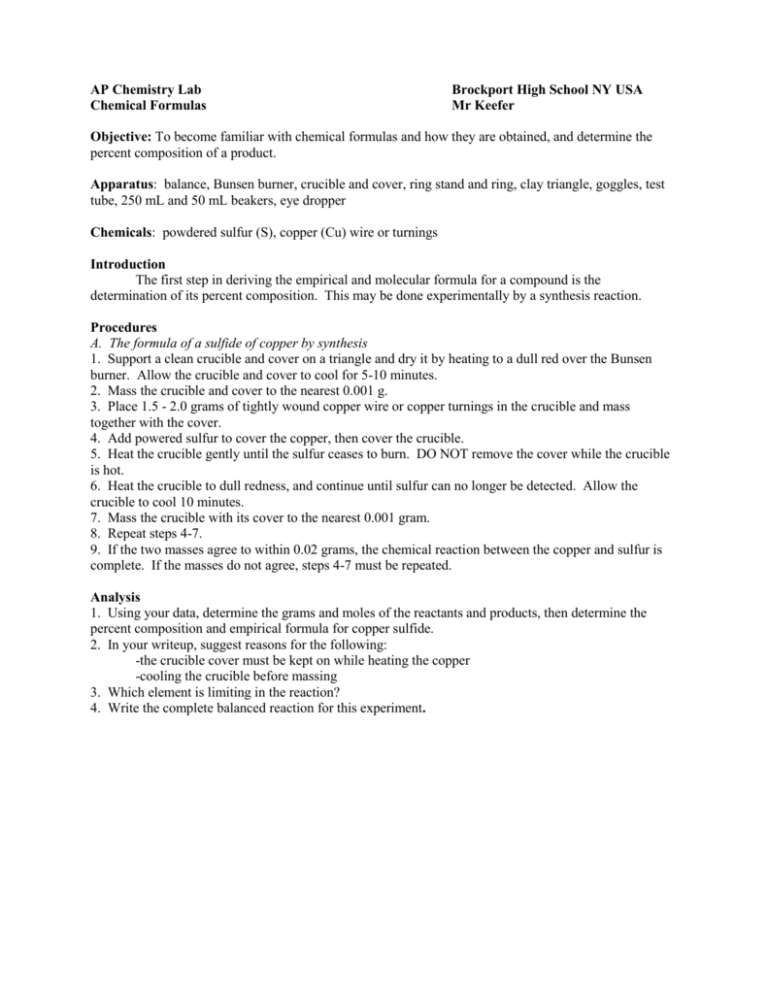
AP Chemistry Lab Chemical Formulas Brockport High School NY USA Mr Keefer Objective: To become familiar with chemical formulas and how they are obtained, and determine the percent composition of a product. Apparatus: balance, Bunsen burner, crucible and cover, ring stand and ring, clay triangle, goggles, test tube, 250 mL and 50 mL beakers, eye dropper Chemicals: powdered sulfur (S), copper (Cu) wire or turnings Introduction The first step in deriving the empirical and molecular formula for a compound is the determination of its percent composition. This may be done experimentally by a synthesis reaction. Procedures A. The formula of a sulfide of copper by synthesis 1. Support a clean crucible and cover on a triangle and dry it by heating to a dull red over the Bunsen burner. Allow the crucible and cover to cool for 5-10 minutes. 2. Mass the crucible and cover to the nearest 0.001 g. 3. Place 1.5 - 2.0 grams of tightly wound copper wire or copper turnings in the crucible and mass together with the cover. 4. Add powered sulfur to cover the copper, then cover the crucible. 5. Heat the crucible gently until the sulfur ceases to burn. DO NOT remove the cover while the crucible is hot. 6. Heat the crucible to dull redness, and continue until sulfur can no longer be detected. Allow the crucible to cool 10 minutes. 7. Mass the crucible with its cover to the nearest 0.001 gram. 8. Repeat steps 4-7. 9. If the two masses agree to within 0.02 grams, the chemical reaction between the copper and sulfur is complete. If the masses do not agree, steps 4-7 must be repeated. Analysis 1. Using your data, determine the grams and moles of the reactants and products, then determine the percent composition and empirical formula for copper sulfide. 2. In your writeup, suggest reasons for the following: -the crucible cover must be kept on while heating the copper -cooling the crucible before massing 3. Which element is limiting in the reaction? 4. Write the complete balanced reaction for this experiment.

